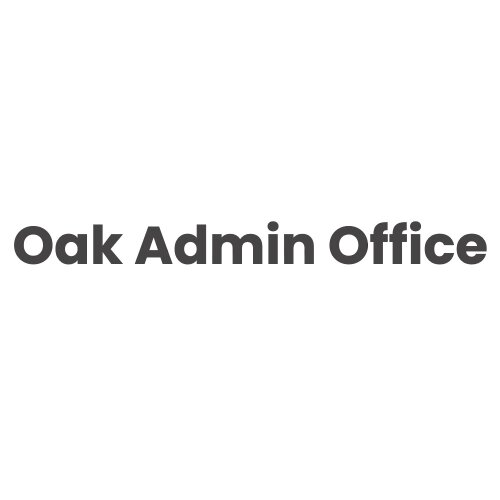Best International Trade Law Lawyers in Tokyo
Share your needs with us, get contacted by law firms.
Free. Takes 2 min.
List of the best lawyers in Tokyo, Japan
About International Trade Law in Tokyo, Japan
International Trade Law in Tokyo, Japan, encompasses the legal rules, regulations, and agreements that govern trade between Japan and other countries. Given Tokyo's status as a global economic center, it plays a crucial role in regulating imports and exports, ensuring compliance with international trade agreements, and resolving cross-border trade disputes. The legal framework is influenced by both domestic legislation and international treaties such as those agreed upon by the World Trade Organization (WTO).
Why You May Need a Lawyer
There are several scenarios where individuals or businesses might require legal assistance in the field of International Trade Law in Tokyo:
- Navigating complex trade regulations to ensure compliance and avoid penalties.
- Engaging in cross-border transactions and requiring due diligence to mitigate risks.
- Resolving disputes arising from international trade agreements or customs regulations.
- Securing intellectual property rights related to international business activities.
- Advising on tariffs, import duties, and other taxation issues that affect international trade.
- Understanding and leveraging international trade agreements for strategic business advantages.
Local Laws Overview
Key aspects of local laws in Tokyo relevant to International Trade Law include:
- Customs Tariff Law: Governs the taxes imposed on imported and exported goods, impacting the cost and regulations of trade transactions.
- Foreign Exchange and Foreign Trade Control Law: Regulates finance and trade concerning foreign countries, with an emphasis on national security and economic stability.
- Anti-Monopoly and Fair Trade Act: Ensures free market competition, protecting consumers and businesses from unfair trade practices.
- Labor Standards and Compliance: Dictates legal standards for labor practices within international trade operations.
- Intellectual Property Laws: Critical for companies that deal with patented or trademarked goods internationally.
Frequently Asked Questions
1. What is the role of an international trade lawyer?
An international trade lawyer helps clients navigate the complex web of regulations, ensures compliance, and represents clients in dispute resolution processes.
2. How can local customs regulations in Tokyo affect international trade?
Customs regulations influence tariff rates, documentation requirements, and import/export restrictions-all of which can affect supply chain efficiency and costs.
3. What are the consequences of non-compliance with international trade laws?
Non-compliance can result in fines, penalties, trade bans, and damage to a company's reputation, among other legal repercussions.
4. Can international trade laws influence my company's tax obligations?
Yes, trade laws can affect duties and import/export tariffs, which may impact your company's overall taxation and financial planning strategies.
5. How do trade agreements impact business operations in Tokyo?
Trade agreements can reduce tariffs, establish trade partnerships, and influence terms of trade, impacting cost and market access.
6. Are there specific trade restrictions for certain goods in Japan?
Yes, Japan imposes restrictions on weapons, hazardous materials, and certain agricultural and manufactured products in accordance with international treaties and domestic policies.
7. How can I find out if my goods are subject to export control regulations?
Consulting with an international trade lawyer or checking with the Ministry of Economy, Trade, and Industry (METI) can provide guidance on regulated goods.
8. What are the typical costs associated with hiring an international trade lawyer?
Costs vary based on the complexity of legal issues, the scope of services, and the lawyer's experience and reputation.
9. Can Japanese companies benefit from international trade dispute resolution mechanisms?
Yes, companies can utilize dispute resolution services provided by organizations such as the WTO or international arbitration bodies.
10. How does international trade impact environmental regulations in Japan?
Japan's trade policies often incorporate environmental standards, ensuring that trade practices do not conflict with environmental sustainability goals.
Additional Resources
- Ministry of Economy, Trade and Industry (METI): Provides guidelines and updates on trade legislation and policies in Japan.
- Japan External Trade Organization (JETRO): Offers support and information for businesses involved in international trade with Japan.
- World Trade Organization (WTO): International body governing trade relationships, sets regulations influencing global trade.
Next Steps
If you require legal assistance in International Trade Law in Tokyo, consider the following steps:
- Identify Your Legal Needs: Clearly define the issues or questions you have regarding your trade activities.
- Research Legal Professionals: Look for specialized international trade lawyers or law firms with experience in Tokyo, Japan.
- Schedule Consultations: Meet with potential legal advisors to discuss your case and evaluate their expertise and compatibility.
- Review and Retain Services: Once you find a lawyer who meets your needs, formally engage their services to assist with your legal issues.
- Stay Informed: Continue to educate yourself about ongoing changes in International Trade Law and how they might impact your activities.
Lawzana helps you find the best lawyers and law firms in Tokyo through a curated and pre-screened list of qualified legal professionals. Our platform offers rankings and detailed profiles of attorneys and law firms, allowing you to compare based on practice areas, including International Trade Law, experience, and client feedback.
Each profile includes a description of the firm's areas of practice, client reviews, team members and partners, year of establishment, spoken languages, office locations, contact information, social media presence, and any published articles or resources. Most firms on our platform speak English and are experienced in both local and international legal matters.
Get a quote from top-rated law firms in Tokyo, Japan — quickly, securely, and without unnecessary hassle.
Disclaimer:
The information provided on this page is for general informational purposes only and does not constitute legal advice. While we strive to ensure the accuracy and relevance of the content, legal information may change over time, and interpretations of the law can vary. You should always consult with a qualified legal professional for advice specific to your situation.
We disclaim all liability for actions taken or not taken based on the content of this page. If you believe any information is incorrect or outdated, please contact us, and we will review and update it where appropriate.















